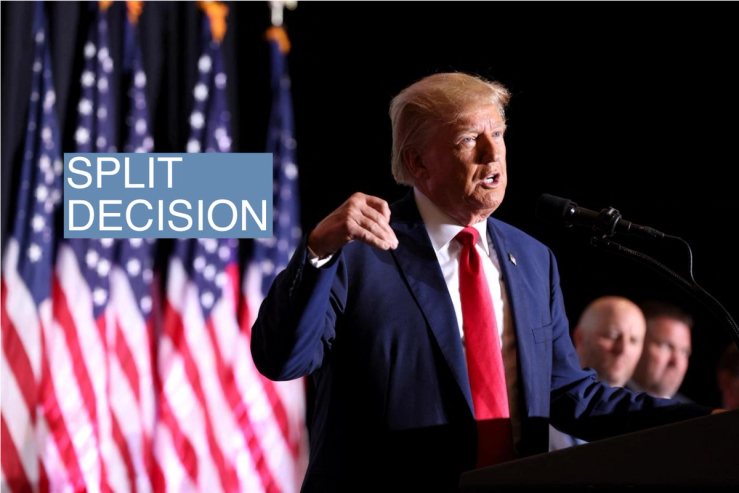Benjy’s view
Mitt Romney is very worried about a divided Republican field electing Donald Trump, just like he argues a similar one did in the 2016 primaries. So much so that he’s publicly asking donors to cut off support to any candidate who’s not getting it done by the South Carolina primary next February.
He doesn’t have much to worry about. The “divided field” concern — a staple of election commentary since Trump’s first nomination — is a classic case of generals fighting the last war.
For one, the situation has changed: Donald Trump has a huge lead right now and pulls over 50% support in national polls of Republicans, with even higher favorability numbers. Worrying about splitting the vote in February is like telling a basketball team that’s 12 games under .500 at the All-Star break to think about their strategy for the NBA Finals.
It’s not just that it’s premature, though: The obsession with the divided field that elected Trump in 2016 has arguably damaged Republicans’ chances of defeating him in 2024.
The reason why is that Republicans skeptical of a third Trump run already took Romney’s lesson to heart years ago. Since the moment Biden took office, they began uniting behind Ron DeSantis to get around this very problem. The Murdoch media empire went about enthusiastically promoting his work in Florida and downplaying Trump for awhile, big donors threw record amounts of cash at his less-than-competitive re-election campaign, and numerous potential candidates decided against a run, with some even citing their fear of —you guessed it — a divided field.
Getting behind DeSantis early made sense, on paper. He had unique advantages that made him look compelling as a candidate who could appeal to both traditional and MAGA Republicans.
The good news for Republicans is that it briefly worked. DeSantis started the year as the near-undisputed heavyweight champion of the non-Trump field against a bunch of rivals polling near the margin of error. At one point, he was even threatening to overtake Trump.
The bad news is that DeSantis hasn’t lived up to the billing. His campaign has not looked competent, his personal charisma has been less than compelling, and he’s still settling on a clear message that can rally supporters and put Trump on the defensive.
But the even worse news is that there are few, if any, obvious backups if DeSantis flames out. Tim Scott is next in line to audition as a consensus option with a traditional resume, but he’s also untested on the national stage and has scrupulously avoided major confrontations with Trump for years, who has in turn held his fire. Everyone else looks like a niche candidate until they can prove otherwise, especially when there will be strong incentives for donors and interest groups to return to Trump if his nomination starts to look inevitable.
Had the non-Trump Republican party encouraged some more credible contenders to run, they might have been able to use this early period to see who could build some authentic grassroots momentum or find an angle against Trump that works. Instead, they’re likely stuck with what they’ve got.
In this article:
Room for Disagreement
To be fair, it’s not clear there’s anyone outside the field who would be doing better — Glenn Youngkin is the most cited name, but there’s no sign voters are clamoring for him to join the race. The fundamental problem is still that Trump is popular with a majority of Republicans, full stop. In fact, the “divided field” was an exaggerated problem in 2016 for the same reason — Trump did well in some late head-to-head polls against individual opponents.
But campaigns are unpredictable. The mayor of South Bend, Indiana made a real run at the nomination in 2020 on the Democratic side, and the person who’s arguably stood out the most so far in 2024 is a 37-year old anti-woke entrepreneur. If DeSantis can’t turn his campaign around and the other options fail to break out, don’t be surprised to see a future Wall Street Journal op-ed begging more candidates to run in 2028 — and possibly against Trump again.
Notable
- Amy Walter at Cook Report breaks down some of the differences between the Republican race in 2016 versus 2024. The biggest one: “Trump is a lot more popular among Republicans and Republican-leaning independent voters than he was in 2015-2016.”


